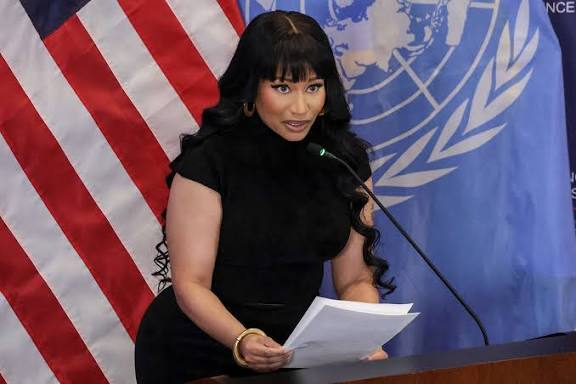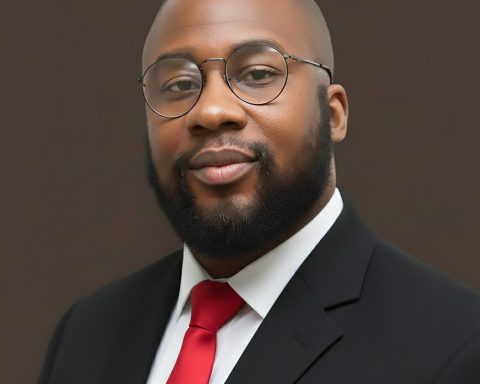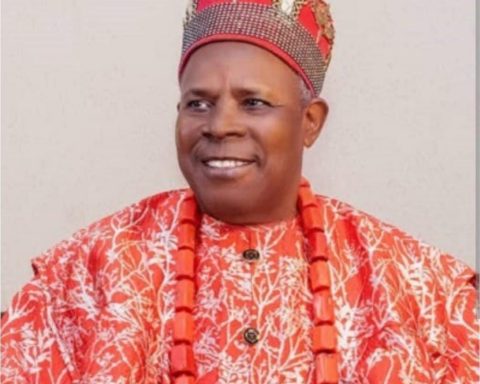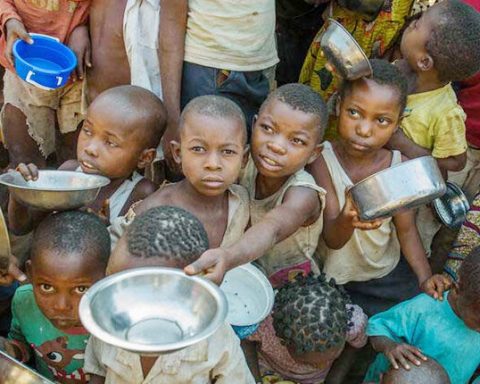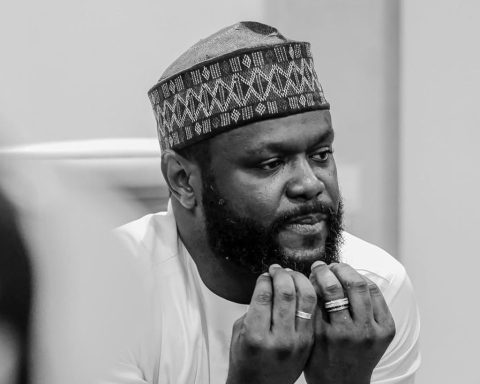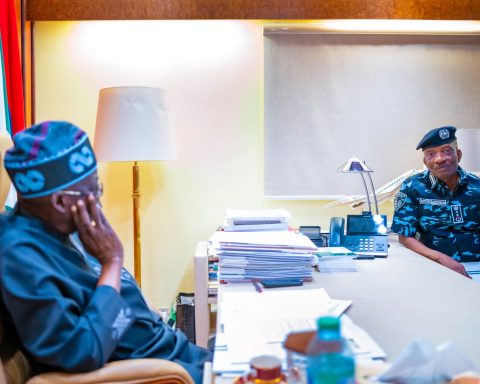By Dr. Jude Dike, Ph.D.
Nicki Minaj speaking at the U.N. about alleged Christian genocide in Nigeria is a significant moment and there are many layers to why her address matters. Here are seven important implications of her U.N. speech:
1. Amplifying Global Awareness
- Platform leverage: Nicki Minaj is a globally recognized artist with millions of followers. By using her platform to speak at the U.N., she brings an issue that might otherwise be marginalized into a much more visible global conversation.
- Shining light on underreported suffering: According to her speech, Christians in Nigeria are being “targeted, driven from their homes, and killed… simply because of how they pray.” Although many media outlets and international actors may not have given this issue sustained focus, Minaj’s intervention forces it into diplomatic and public discourse.
- Mobilizing her fanbase (“Barbz”): She explicitly addresses her fans (“Barbz”), which can galvanize grassroots support, activism, and pressure on policymakers.
2. Moral and Human Rights Framing
Join our WhatsApp Channel- Religious freedom as a universal right: Minaj frames what’s happening in Nigeria not just as a political crisis, but as a violation of fundamental human rights: “simply because of how they pray.”
- Moral spotlight on the U.N. itself: She said the violence “should shake the world body”, a pointed moral call to the U.N. to live up to its peace and security mandate.
- Nonpartisan appeal: She emphasizes that her intervention is “not about taking sides … It is about uniting humanity.” By doing this, she frames the issue in terms of shared human dignity rather than political alignment.
3. Political Pressure and Diplomacy
- Supporting political action: Her speech aligns with political calls for action. She thanks President Donald Trump for prioritizing the issue and calling for the protection of Christians in Nigeria.
- Encouraging U.N. engagement: By raising this issue at the U.N., she is advocating for more formal international involvement, not just moral outrage, but potentially policy, aid, or diplomatic pressure.
- Spotlight on U.S. foreign policy: Her presence, together with U.S. Ambassador Mike Waltz, underscores U.S. interest in this issue. It may signal that some in the U.S. want sustained pressure on Nigeria, or on the Islamic terrorist groups, to stop the violence.
READ ALSO : Forty-five days that changed elections in Africa?
Minaj Urges UN Action on Violence Against Christians in Nigeria
4. Humanizing the Victims
- Putting real faces to statistics: When she talks about “families torn apart,” “churches burned,” and communities living in fear, she shifts the conversation from abstract numbers to real human suffering.
- Creating empathy: As a public figure who often connects with her fans on emotional levels through her music, Minaj’s testimony can evoke compassion and empathy more powerfully than dry policy briefings.
- Breaking geographic distance: Many people in the West, for example, may not follow Nigerian news closely. Her speech bridges that gap, making distant suffering more immediate to international audiences.
5. Challenging Global Inaction
- Calling out “human rights elite”: Some commentators note that she is shaming the global human rights establishment for inaction on this issue, essentially saying that if the U.N. and other bodies cared, more would be done.
- Urgency over complacency: By stressing that the problem “demands urgent action,” she is pushing against bureaucratic delay or diplomatic paralysis.
- Raising the cost of ignoring violence: Her involvement raises reputational risks for global leaders and institutions if they continue to ignore or downplay the persecution she describes.
6. Cultural and Symbolic Significance
- Celebrity activism: This event underscores the increasing role of celebrities in global politics. A major artist at the U.N. isn’t just symbolic, it represents a shift in how advocacy works.
- Faith and identity intersection: Minaj, though not publicly framed primarily as a Christian activist, draws on her faith (or at least her sense of moral purpose) to justify speaking out. This may resonate with audiences who see persecution in religious terms not just political ones.
- Narrative re-shaping: Her speech contributes to how the world narrative around Nigeria might evolve: not just ethnic violence or banditry, but potentially religious oppression. That narrative framing can influence future media coverage, NGO priorities, and even academic attention.
7. Potential Risks and Critiques (and Why Her Address Still Matters)
- Risk of politicization: Some critics argue that her speech aligns too closely with a particular political agenda, especially given her praise for Trump. This could risk the issue being dismissed by opponents as partisan.
- Oversimplification of Nigeria’s crisis: The violence in Nigeria is deeply complex: there are ethnic, economic, political, and religious dimensions. By framing it strictly as “Christian genocide,” there’s a risk of simplifying or misrepresenting these dynamics.
- Backlash and polarization: Her involvement might provoke backlash not only in diplomatic circles but also among artists, activists, and communities who disagree with her framing or political alignment.
- Galvanizing action outweighs risk: Despite the risks, her voice may mobilize those who otherwise wouldn’t engage. Even if some criticize her motives, the fact remains that her intervention brings more resources such as attention, media, and public pressure to a serious issue that some argue has been neglected.
Nicki Minaj’s intervention may not solve the crisis immediately, but by shining a spotlight, she is helping to push it higher up on the international agenda and that can lead to a concrete change.
About the Author Dr. Jude Dike, Ph.D., is a public policy analyst and frequent commentator on African development and governance. He writes from Calgary, Canada.


